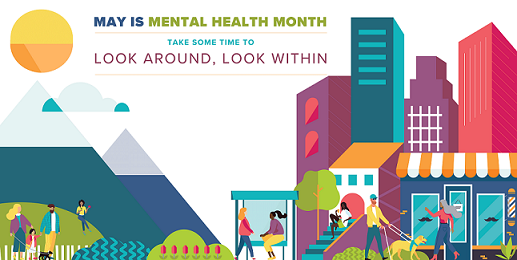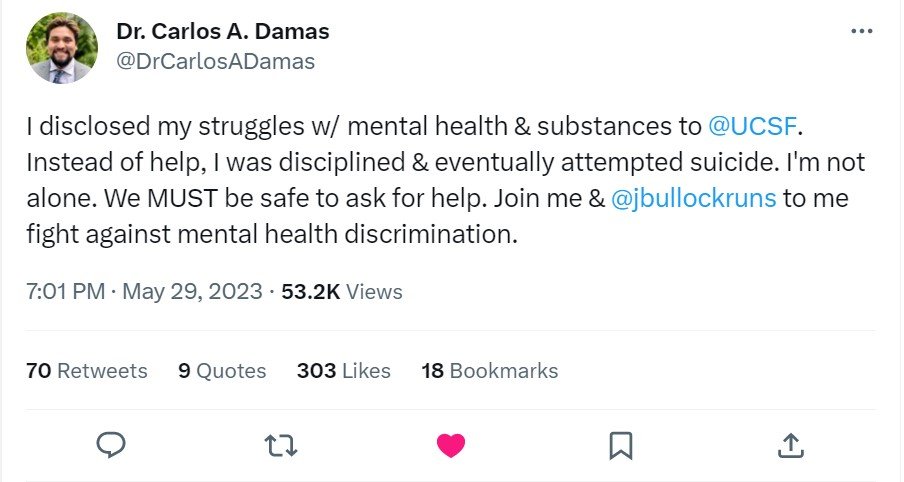Mental Health Month: Breaking the Stigma and Starting the Conversation in Medicine
May is Mental Health Month. What does this conversation mean for physicians, nurses, medical students, residents, and healthcare workers?
Mental Health Month: Breaking the Stigma and Starting the Conversation in Medicine
May is Mental Health Month, a time to raise awareness and break the stigma surrounding mental health in the medical community. Join the conversation and help make a difference.
May is recognized as Mental Health Month, a time to promote awareness and understanding of mental health issues. This month-long observance aims to break down mental health stigma and encourage individuals to seek help when needed. As may comes to a close, we invite everyone to reflect on the progress that has been made for mental health for healthcare professionals and patients. Join the conversation and help make a difference in the lives of healthcare workers struggling with mental health challenges.
Understanding the Stigma Surrounding Mental Health in Medicine.
Despite progress in recent years, there is still a significant stigma surrounding mental health in the medical community. Many healthcare professionals may feel uncomfortable discussing mental health issues with their patients or lack the training to do so effectively. This can lead to a lack of proper diagnosis and treatment for those struggling with mental health challenges. It’s important to break down this stigma and start the conversation about mental health in medicine. Many physicians and nurses identify as suffering from burnout but are hesitant to access mental health services.
The Importance of Starting the Conversation.
Starting the conversation about mental health in medicine is crucial for breaking down the stigma and ensuring that patients receive the care they need. By opening up about mental health and encouraging patients to do the same, healthcare professionals can create a safe and supportive environment for those struggling with mental health challenges. This can lead to earlier diagnosis, more effective treatment, and better outcomes for patients. So let’s start the conversation and make a difference as we finish mental health month.
Resources for Mental Health Support in the Medical Community.
Does your organization provide resources for getting support? In many organizations, people do not use employee assistance programs for fear of retailiation. The medical community has a responsibility to provide resources and support for those struggling with mental health challenges. There are many organizations and resources available to healthcare professionals, including the National Alliance on Mental Illness (NAMI), the American Psychiatric Association (APA), and the Substance Abuse and Mental Health Services Administration (SAMHSA). These organizations offer training, education, and support for healthcare professionals to better understand and address mental health issues in their practice. By utilizing these resources, healthcare professionals can provide better care for their patients and help break down the stigma surrounding mental health in medicine. Sharp Index has resources for healthcare professionals. Some nonprofit organization like the Therapy Aid Coalition, provide free debriefing and support for healthcare professionals.
Addressing Mental Health in Medical Education and Training.
It’s important for medical professionals to receive education and training on mental health in order to provide the best care for their patients. This includes understanding the signs and symptoms of mental illness, how to properly diagnose and treat mental health conditions, and how to provide support and resources for patients. By addressing mental health in medical education and training, we can break down the stigma surrounding mental health in medicine and provide better care for those struggling with mental health challenges. Many health systems and residency training programs have patient facing care, but do not support mental wellbeing for healthcare professionals. A recent discussion on twitter brought the ongoing gap between ideal care and medical school and training realities. Many organizations and schools risk violating ADA laws by stigmatizing access to care. Justin Bullock, MD, shared his story with the New England Journal of Medicine in 2020. His advocacy won him both a Sharp Index Award and a WebMD Healthcare Hero Award. A twitter interaction shared just this week featured ongoing problems. What does this mean for healthcare? We have come a long way, with more medical school trainees seeking help than ever before. Many organizations provide support and public statements about the importance of mental health. Lived experience doesn’t always match that knowledge and the ideal medical care. We still have a long way to go.
Sharp index has ongoing trauma support for physicians who face barriers and has supported individuals through advocacy for their mental health and safe work environments. If you would like to be involved, you can sign up.
Taking Action to Break the Stigma and Support Mental Health.
Breaking the stigma surrounding mental health is crucial in supporting those who are struggling with mental health challenges. One way to take action is by starting the conversation in medicine. Medical professionals can educate themselves and their colleagues on mental health, provide resources and support for patients, and advocate for policies that prioritize mental health care. By working together, we can create a more supportive and understanding environment for those who are dealing with mental health issues.
Hello, World!
I disclosed my struggles w/ mental health & substances to @UCSF. Instead of help, I was disciplined & eventually attempted suicide. I'm not alone. We MUST be safe to ask for help. Join me & @jbullockruns to me fight against mental health discrimination.
— Dr. Carlos A. Damas (@DrCarlosADamas) May 29, 2023


